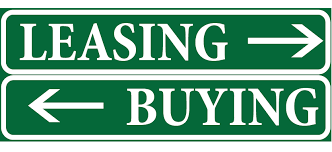ELAN JOINS LAGOS CHAMBER OF COMMERCE AND INDUSTRY (LCCI)
ELAN JOINS LAGOS CHAMBER OF COMMERCE AND INDUSTRY (LCCI) In pursuit of its objective of promoting the business of leasing in Nigeria, Equipment Leasing Association of Nigeria (ELAN) has continued to strengthen partnership with the organised private sector and recently joined Lagos Chamber of Commerce and Industry (LCCI). This is to further the Association’s…
Read MoreTAX IMPLICATIONS OF LEASING IN NIGERIA
The Federal Inland Revenue Service (FIRS) adopted the treatment of leasing by the International Accounting Standards on Leases SAS 11, and accordingly classifies leases for tax purposes as either finance or operating leases, together with other variants of leasing such as leveraged leases, sale and lease back and sale – type lease. At this…
Read MoreUNDERSTANDING KEY ISSUES IN LEASE CREDIT ASSESSMENT
As a lessor (the owner of the asset), leasing business can be sourced through the following are the ways: By direct marketing of the Lessor’s services; the Lessor can approach a potential Lessee (the customer that needs the asset) for business; The Lessee initiating the approach to a Lessor for lease facility; Through sales-aid…
Read MoreSPOTING THE RED FLAGS IN A LESSEE’S PROPOSAL FOR A LEASE
There are several factors that portend danger in the performance of a firm. If a potential corporate lessee comes up with a proposal for a lease transaction, it is important to properly analyse the books and ensure the following signs are not available before venturing into such business. These can make the difference between…
Read MoreMAJOR ISSUES THAT AFFECT LEASE VERSUS BUY DECISIONS
There are some factors and variables, both qualitative and quantitative, that affects a person or firm’s decision either to buy or lease an asset. It is imperative as a lessee (user of an asset) to critically analyse these issues to arrive at a better decision. The following are some of the qualitative factors that…
Read MoreOVERCOMING COMMON OBJECTIONS IN LEASING
In other to succeed as a lessor (owner of asset), it is important to identify objections to leasing and find a way to overcome them to win the deal. Some of the most common objections include: Leasing is more expensive The person or entity wants to acquire through cash Leasing is complex The person…
Read MoreLEASE AND OTHER EQUIPMENT FINANCING OPTIONS
Leasing is similar to other forms of equipment financing. However, it has distinct nature from the other methods. i. Hire Purchase – the assets are delivered to a person who agrees to make periodical payments by way of hire with an option to purchase. There are two transactions i.e. Hire and purchase combined into one….
Read MoreHOW TO TREAT TAX AS A LESSEE (USER OF ASSET)
All lessees, especially a business entity, must treat their taxes appropriately in its books, and this should comply with the provisions of the latest circular “Guidelines on Tax Implications of Leasing” issued by the in Federal Inland Revenue Services (FIRS) in April 2010. The following specifies how taxes should be treated by a lessee…
Read MoreMAJOR GUIDES TO PROFITABLE LEASE STRUCTURING
Structuring a lease involves determining the periodic lease payment based on the terms of the lease, in such a way as to cover all costs associated with the lease investment and the target rate of return, while remaining competitive in the market. Our focus is to consider the various methods and steps involved in…
Read MoreFG SEEKS ELAN INTERVENTION TO DEVELOP THE MINING SECTOR
FG SEEKS ELAN INTERVENTION TO DEVELOP THE MINING SECTOR The Federal Government has recently contacted Equipment Leasing Association of Nigeria (ELAN), to partner with it on the implementation of Nigeria’s national economic strategic plan – the Economic Recovery and Growth Plan (ERGP). Part of this plan is the focus lab, which will be held…
Read More










